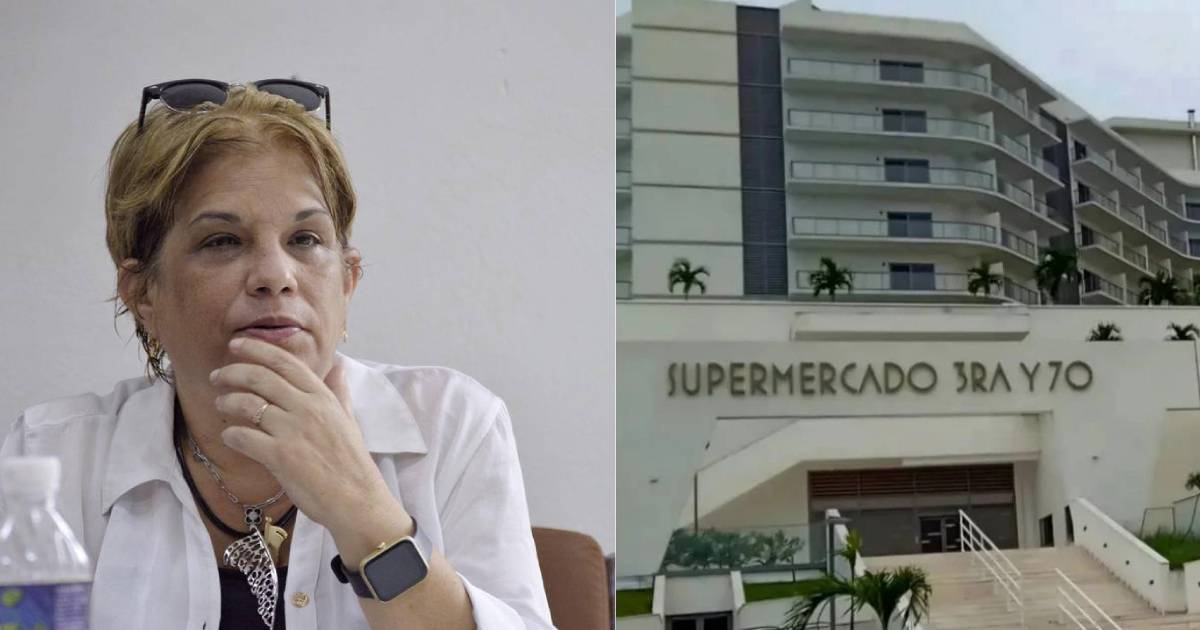
Related videos:
Official journalist Ana Teresa Badia sparked a debate on social media after expressing her discontent with the opening of a dollar supermarket located in the lower level of the Gran Muthu Habana hotel in the Cuban capital.
In a post on her Facebook profile, Badia highlighted the numerous questions that arise with the implementation of this trade model and questioned the decision that the new supermarket only allows payments in cash dollars or with international credit cards, excluding the cards in freely convertible currency (MLC) that are typically used in other similar establishments.
The also professor at the Faculty of Communication at the University of Havana issued a direct criticism: “Why can't we pay with MLC cards but can with the so-called Classic? Has MLC turned into Aladdin's dust?”
The journalist recalled that similar situations had occurred in the past when Cuban medical collaborators, including her mother, had to convert their earnings in MLC into Cuban pesos or leave them in unpaid deposits.
She also expressed skepticism about how this influx of dollars will help supply other stores, suggesting that the issues in commerce are not only related to resources but also stem from a lack of initiative and organization.
Badia emphasized the importance of transparent communication in projects of this nature. “When there is no information, it leaves room for rumors. There cannot be any experimental project whose implementation is not explained,” he wrote, while criticizing the treatment clients receive at establishments, describing it as inattentive and lacking empathy.
With a call for reflection, Badia concluded her post with a warning: "Many explanations are lacking." The journalist urged authorities and retail chains to use their digital platforms to provide proper information, avoiding speculation and social discontent.
The opening of this supermarket is part of a series of measures by the Cuban government aimed at attracting foreign currency amidst the ongoing economic crisis in the country.
Since 2019, stores operating in foreign currency have opened, initially for the sale of household appliances, and later expanding their offerings to include food and essential products.
The exclusion of MLC cards in the supermarket located in the lower level of the Gran Muthu Habana hotel has surprised many, as these cards had become the primary payment method in stores operating with foreign currency.
These stores have faced criticism from the population, who perceive them as a source of economic inequality, as many Cubans do not have direct access to foreign currency and rely on remittances or the informal market to make purchases there. Furthermore, it has been pointed out that these measures have not solved the issue of shortages in the stores that operate in national currency.
The comedian Ulises Toirac, known for his satirical take on Cuban reality, commented on his social media: "We already have transportation in USD (rental cars), we already have appliances in USD (stores for 'cards'), soon we’ll have food and hygiene products in USD... How great! The day when we get paid in USD is coming soon!"
Frequently Asked Questions about the Dollar Supermarket in Havana
Why does the new supermarket in Havana only accept payments in dollars?
The supermarket in Havana only accepts payments in dollars as part of the Cuban government's strategy to attract foreign currency amid the economic crisis. This measure reflects the increasing dollarization of the Cuban economy, prioritizing sales in dollars to secure strong currency, while the majority of Cubans do not have direct access to these currencies.
What payment options are available at the dollar supermarket in Havana?
In this supermarket, payments can be made in cash in dollars, with the Fincimex Classic card, or with a special GAESA card that can be recharged from abroad. Payments in Convertible Currency (MLC) are not accepted, which has caused dissatisfaction among the population.
How does the dollarization of supermarkets affect the Cuban population?
The dollarization of supermarkets is impacting the Cuban population by exacerbating economic inequalities. Many Cubans do not have direct access to dollars and rely on remittances or the informal market to obtain them. This situation limits their ability to purchase basic goods and heightens the sense of economic exclusion.
What criticism has the exclusion of MLC cards generated at the new supermarket?
The exclusion of MLC cards has been criticized by the public and public figures, such as journalist Ana Teresa Badia, who questioned the functionality of MLC within the Cuban financial system. It is seen as a measure that increases economic inequality and restricts Cubans' access to the products available in these stores.
Filed under: